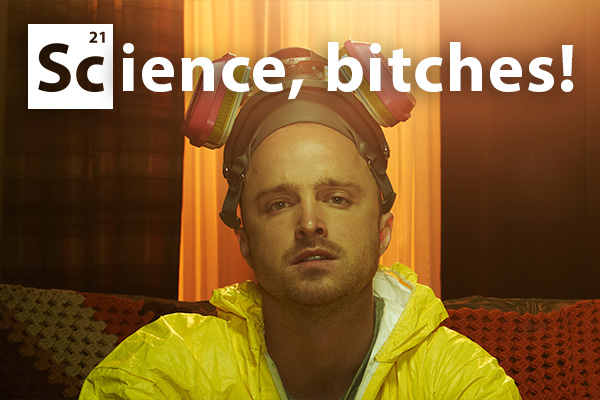Science, Bitches | Issue 09
Procrastination problems
You want to do your homework but, simultaneously, you don’t. You’ve got all night ... maybe you should tidy your room first (it will just be a distraction otherwise), or watch a movie to relax. This ancient battle between you and yourself is actually a tug-of-war between two different parts of your brain, namely the limbic system and the prefrontal cortex. When the limbic system wins, we procrastinate. But the limbic system isn’t always our enemy – it passes on such handy hints like “stop touching that hot stove.” Essentially, it just wants us to be happy, right now. Though well intentioned, the limbic system lacks the ability of the prefrontal cortex to accurately predict the future, and to see just where our actions are leading.
The severity of your problem with procrastination may be your parents’ fault, with research pointing to impulsivity and procrastination being genetically linked. Impulsive people often are procrastinating people! Other traits that positively correlate with being a procrastinator include being distractible and having low self-confidence (maybe you just don’t think you can do a good job, anyway?).
At this point, you may feel hopelessness start to set in. Does all this mean that you should give up the fight? Is it your destiny to put things off until the cumulative stress results in the heart attack that ends you? Don’t despair, dear reader! Science is just telling you that some people may have a predisposition to procrastination, not that it can’t be fought.
To fight procrastination, you must first arm yourself. By reading this column you have already armed yourself with some knowledge. Good work! Now you just need to learn about some scientifically-endorsed battle strategies. For example, you can start by tackling the very worst task, or part of a task first. Another method is to break down that distant deadline into a bunch of smaller deadlines. And sometimes a procrastinator finds that starting is the hardest part. Set a timer for a small amount of time, say 10 minutes, and promise yourself you will work during that time. You might just find you can keep going! Or if you have a few decades on your hands, you could just keep waiting. Procrastination tends to decrease as you age.
To end on a positive note for you chronic procrastinators, there is also science suggesting your powers may occasionally benefit you. You may be speedy! One study found that when the worst procrastinators finally get around to starting, they manage to work up to 11 times faster than average. This suggests that science may be able to back you up when you claim to just be “efficient.” And it’s not like there have never been successful procrastinators. Douglas Adams, author of The Hitchhiker’s Guide to the Galaxy, is often quoted as saying “I love deadlines, I like the whooshing sound they make as they fly by.”
So grab your pen, get to work and then you can go back to reading all the “Science, bitches!” you can handle. That’s science, bitches!







